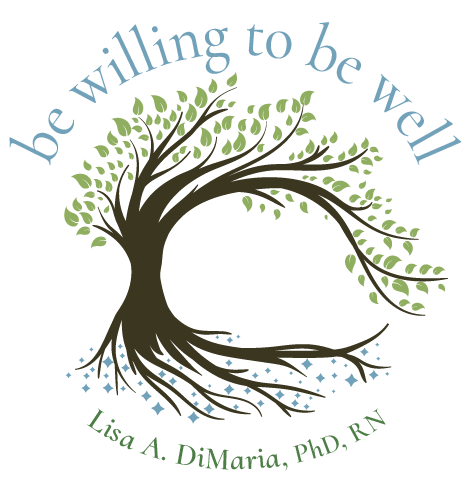Change or Growth?
Change. That six-letter word. Over the years, I have often thought “if only there was some other word.” Another word with softer edges; one that had a gentler impact. In my line of work, people often hear the word change after they receive unpleasant news. In the case of change, it seems that we are either trying to speed it up when it suits us or stop it altogether.
Though we can make the purposeful decision not to change, in reality, it happens in spite of us. This has never been truer than in the past year. Change quite literally crashed into our lives. We have seen and experienced suffering. Period. There is no tip toeing around that. At long last, there is a glimmer of hope on the horizon. I see this as no better time for repair; to fully embrace caring for ourselves. Can we seize this opportunity to make health and well-being a priority?
In my work with new nurses, one of my favorite phrases was “later never comes.” Whether or not they found this motivating is still up for debate! Of course, I was trying to teach the value of completing tasks as soon as possible, but for me, the phrase has a much deeper meaning. I believe that the only time we truly have is now. Too often, we put off the difficult while life speeds along. Mary Oliver asks, “what is it you plan to do with your one wild and precious life?” It seems to make sense to live this one wild life not just aiming for quantity but for quality.
Change is hard. Especially when it comes to caring for ourselves—like a cherished loved one. For some, change brings up fear. Dr. Lisa Feldman Barrett, a scientist who studies emotion and the brain, dispels the myth that the amygdala, the area of our brain most often linked to the fight or flight response, only senses fear. In fact, the amygdala responds the same way to three things: threat, ambiguity, and novelty. We then decipher which is taking place. What’s important here is that fear and novelty can actually feel like one and the same. Is it possible, in the case of change, that we are misreading our bodies? Is that sensation trying to tell us there’s something new to be learned here? I see the value in exploring this and getting curious about thoughts, emotions, sensations, and our own “later” mindset.
My aim is not to over-simplify change or the challenges of the last year. I know there are many ways of looking at change in terms of health and just as many things that get in its way. My aim is to make a case for not putting your health and well-being off for another day. The very good news? Small steps are powerful. We have had enough of overnight radical change!
As for the word ‘change?’ Perhaps I have always bristled at it is because it can imply that there is something wrong with us. I don’t believe this is true. We simply come to see that there are ways of being that do not serve us anymore. We move toward a new way of being. We grow. In this sense, change really can have soft edges. It can be planned, supported and nurtured. So, while it would be hard to remove the word change from the lexicon, can we replace it with a growth mindset that aligns with ongoing, forward movement—toward a wild and precious life?
I love a good challenge. My challenge for you: spend some quality time reflecting on small changes you have made and how they have impacted your life. Notice who was there, what things were in place, the speed in which it happened, and whether or not you even noticed it was happening at the time. What did you learn about yourself? Is this something you can use going forward? I’d love to hear your answers.
